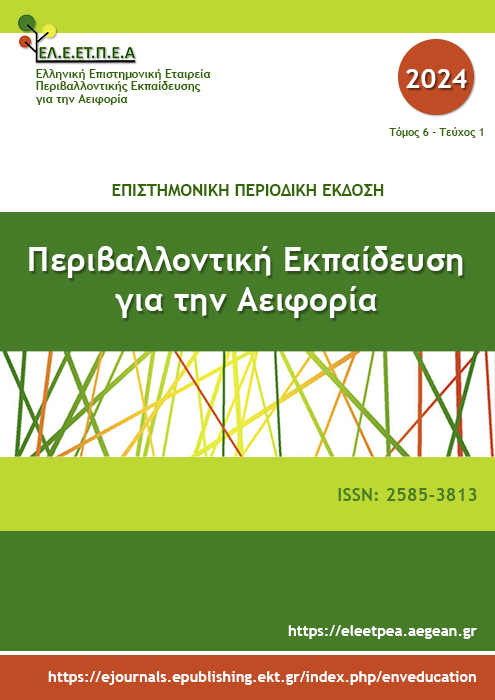Environmental ethics and education development, implementation and evaluation of a Teaching Learning Sequence (TLS) for students regarding the knowledge and values related to the Water Footprint

Abstract
The aim of this study is to present the development, implementation, and evaluation of a Teaching-Learning Sequence (TLS) regarding the Water Footprint (WF) concept. Participants were 27 students (26 females and 1 male) from a Department of Pedagogy that have been enrolled in a full semester university course. In addition to the concept of WF, the concept of virtual water, ways to save water and values related to water use were also taught. The duration of the TLS was twelve teaching hours, and its goal was to increase students’ understanding regarding the problems related to water, as well as to raise their awareness for the need to take immediate action aiming avoid water shortages, and to develop positive attitudes towards water saving. For the evaluation of the TLS, a questionnaire of fourteen (14) questions was administered, before and after teaching, organized in six (6) thematic axes, of which nine (9) questions were open-ended, one (1) was closed-ended, and the remaining four (4) was Likert-type. The questionnaire aimed to assess participants’ knowledge and values regarding the WF. Data analysis revealed that students, after teaching, can understand the environmental problems related to the direct WF, but not to the indirect. More specifically, it was recorded that they can understand the direct and indirect use of water in the various stages of products’ life cycle, as well as the effects on the environment from the use of these products. However, no significant differences were identified regarding the ways reducing WF in specific products, as well as the various values at stake in relation to WF.
Article Details
- How to Cite
-
Γαρυφαλλογιάννη Ε., Malandrakis, G., & Papadopoulou, P. (2025). Environmental ethics and education development, implementation and evaluation of a Teaching Learning Sequence (TLS) for students regarding the knowledge and values related to the Water Footprint. Environmental Education for Sustainability, 6(1), 1–21. https://doi.org/10.12681/ees.37206
- Section
- Articles

This work is licensed under a Creative Commons Attribution-NonCommercial-ShareAlike 4.0 International License.
Authors retain copyright and grant the journal right of first publication with the work simultaneously licensed under a CC-BY-NC-SA that allows others to share the work with an acknowledgement of the work's authorship and initial publication in this journal.

